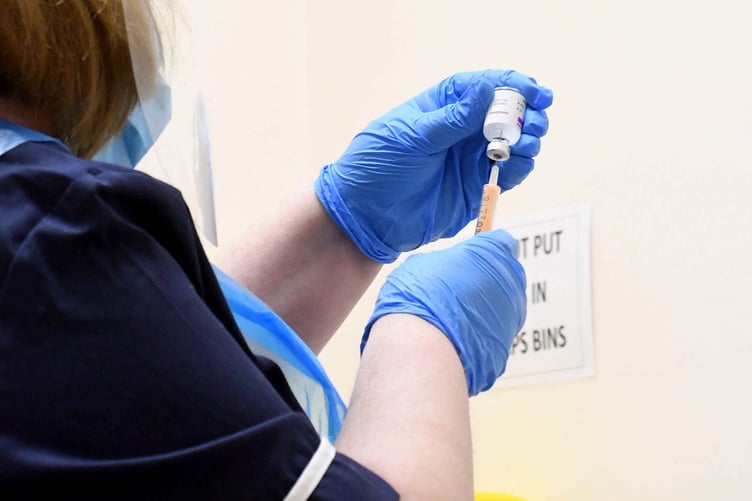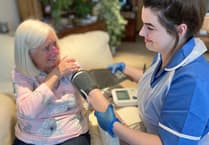The NHS in the South West is urging people yet to have the lifesaving human papillomavirus (HPV) vaccine to get protected against cervical and other cancers as part of a push to eliminate cervical cancer in the region.
GP practices across the South West will send invites via letters, emails, texts and the NHS App to patients aged 16-25 whose records show they did not get their HPV vaccination.
The vaccine is routinely offered to boys and girls in Year 8 (aged 12-13) to help protect them against catching the HPV infection which causes nearly all cervical cancers, and is linked to cancers of the mouth, throat, anus, penis and vagina. If anyone misses the jab, NHS teams also carry out school catch-up visits and host community clinics for home-schooled children.
In the 2023/24 academic year, 77.9 per cent of girls and 72.8 per cent of boys aged 14-15 in the South West were vaccinated by Year 10. However, there are believed to be many people now aged 16-25 who were not jabbed at school. As such, GPs will be contacting those who have not got an HPV vaccination on their records in a bid to reach as many of these people as possible, under plans to eliminate cervical cancer by 2040 as set out in the recently-published 10 Year Health Plan.
The NHS in the South West also recently detailed it’s plans to eliminate cervical cancer, outlining three goals to achieve over the next five years: Increase HPV vaccination rates to at least 90 per cent for boys and girls; halt the decline in cervical screening rates and increase the screening rate to at least 70 per cent in the 25-49 cohort; and ensure at least 90 per cent of women diagnosed with cervical disease receive treatment.
Dr Matthew Dominey, consultant in public health and screening and immunisation lead for NHS England South West said: “It is vital that anyone who is eligible for this vaccine, girls, women, boys and men, comes forward to protect themselves.
“While the HPV vaccine is important as we aim to eliminate cervical cancer, it also helps protect against cancers of the mouth, throat or genitals, while preventing the spread of the HPV infection to sexual partners as well.
“If you are eligible and have not had your HPV vaccine, or if you are the parent of a child who is eligible but has not received their HPV vaccine, I urge you to take up the opportunity for this life-saving vaccine when your GP contacts you.”
Dr Alasdair Wood, consultant in health protection and vaccine preventable disease lead at UKHSA South West said: “We know that uptake of the HPV vaccination in young people has fallen significantly since the pandemic, leaving many many thousands across the country at greater risk of HPV-related cancers. This is a real concern as each HPV vaccine, now just a single dose offered in schools, gives a young person good protection against the devastating impact of these cancers, which includes cervical, genital, mouth and throat cancers.”





Comments
This article has no comments yet. Be the first to leave a comment.